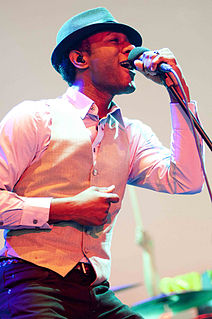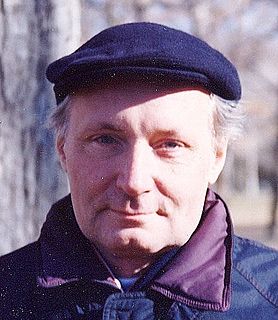A Quote by Eric Kandel
I see psychoanalysis, art and biology ultimately coming together, just like cognitive psychology and neuroscience have merged.
Related Quotes
The first thing I became interested in in terms of 'Brain Storm' was neuroscience, and that is like saying you're interested in the universe. So ultimately I knew if I was going to handle this in a fictional format, I would have to take a subsection of neuroscience, and that turned out to be the use of neuroscience in criminal courts.
Biology is a way of approaching the truth about the mind. In biology most people don't tackle problems at the level of complexity that psychoanalysis does. But psychoanalysis has a degree of uncertainty about it. A psychoanalyst may have some deep insights, but cannot, at the moment, run experiments to establish whether it's really the truth.
I consider it as a foreshadowing of modernity in many different respects, and the consistency of character is interesting to the emerging modern psychology. The emphasis on dream knowledge relates quite deeply to psychoanalysis, although I suppose psychoanalysis wouldn't like to say that... Freud was always saying he was a scientist.
In the Germany of the l920s, the Weimar Republic, both organismic biology and Gestalt psychology were part of a larger intellectual trend that saw itself as a protest movement against the increasing fragmentation and alienation of human nature. The entire Weimar culture was characterized by an antimechanistic outlook, a "hunger for wholeness". Organismic biology, Gestalt psychology, ecology, and, later on, general systems theory all grew out of this holistic zeitgeist.
The question is: exactly how did life get here? Was it by natural selection and random mutation or was it by something else? Everybody - even Richard Dawkins - sees design in biology. You see this design when you see co-ordinated parts coming together to perform a function - like in a hand. And so it's the appearance of design that everybody's trying to explain. So that if Darwin's theory doesn't explain it we're left with no other explanation than maybe it really was designed. That's essentially the design argument.
A poet once said, "The whole universe is in a glass of wine." We will probably never know in what sense he meant that, for poets do not write to be understood... How vivid is the claret, pressing its existence into the consciousness that watches it! If our small minds, for some convenience, divide this glass of wine, this universe, into parts - physics, biology, geology, astronomy, psychology, and so on - remember that nature does not know it! So let us put it all back together, not forgetting ultimately what it is for. Let it give us one more final pleasure: drink it and forget it all!
We see in the 20th Century an unfortunate trench warfare, in which psychoanalysis, in a struggle against the internalized compulsion and superstition of a particular doctrine, has expressed itself atheistically. By contrast, theology is not merely under suspicion of talking soullessly about God. Both theology and psychology, in striving for human health, need one another like the right and the left hand.


































